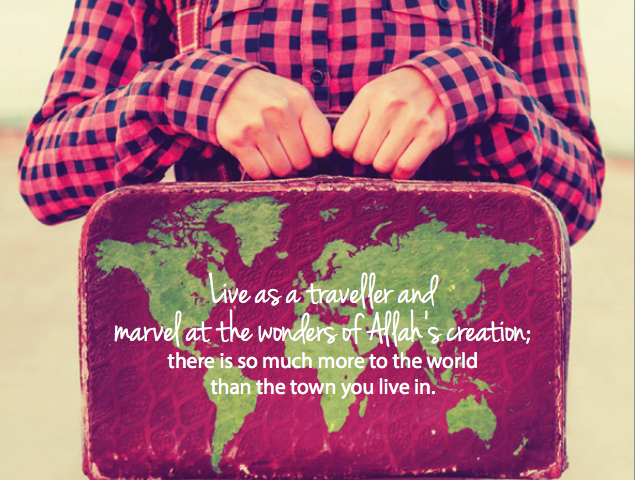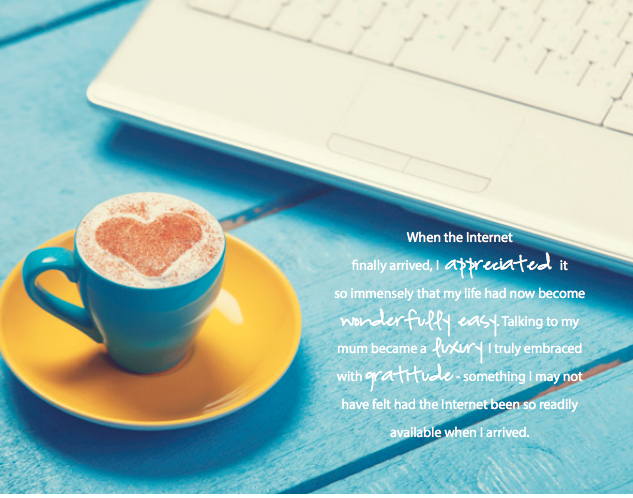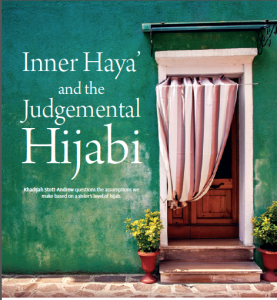Emotions are something everyone experiences, even if we prefer not to advertise them. Contrary to popular belief, internal emotional conflict is not specific to one particular gender. Emotions stem from chemical hormones in the body – something all of mankind were created with. What sets us apart, male or female, is how we process them. It is often assumed that there are only two ways to face these feelings –
- practically and rationally
- succumbing to the emotions without logical thought
However, is it really this black and white? Or is it possible to handle situations rationally whilst also nurturing sensitivities?
I used to think that there was no way to do both. I was a young creature of feeling and constantly allowed my hormones to guide my actions, wishing I could be logical but believing it to be impossible. Exposure to certain ideas, whether reading books or watching movies, had convinced me that there was no alternative way to handle my problems other than to “follow my heart” and do what “feels right”. This methodology obscured my judgement and lead me into many unnecessary conflicts, purely because I was acting on my feelings, rather than the facts at hand. And that is how I lived for most of my life. That is until I got married. The natural and expected discord I experienced in those early days encouraged me to approach problem solving in a different manner. I learnt to take a step back from my emotions to look at a problem logically, whilst still accepting and coping with any emotional turmoil that came my way.I have learnt to recognise whether my reactions are based on an emotional trigger or a logical one. When about to start a heated discussion, my husband will often hear me say, “I’m all hormonal at the moment, sorry!” and I will give myself some space to work through my emotions.
Keeping emotions in check
“How do you know the difference between a logical reaction and a physiological one?” I have been asked. I’m not saying I always make the correct judgment call, not by a long shot, but I tend to realise when I am being irrational once I sit down and think (or write!) through my problem. Once I see there is no logical reason for my level of upset, I can put the issue down to my emotions. Sometimes I find I have a genuine concern and the problem needs to be addressed, but my response has been an overreaction and has even hindered the solutions at hand. This is when a logical approach is imperative. When this happens, I give myself a day to cool down and choose something to help cheer me up. When I am no longer stressed by the problem, I think it through again. This usually has two outcomes – either I am no longer bothered or even see it as a problem, or I have a greater clarity of mind to engage in a productive and useful solution.
Don’t suppress!
I am by no means encouraging the habit of ignoring our emotions or suppressing problems. Just because we are attempting to control and manage emotions, does not mean we are denying their validity. You must still acknowledge that you are upset and allow yourself to feel that emotion, without adding guilt or shame into the mix. Whether the problem is the situation or your reaction, something needs addressing and deserves equal attention. Learn to accept that being unhappy and distressed is ok, and sometimes we even need to cry for no reason other than to detox our minds. Feeling guilty for crying can sometimes fuel negative emotions and pull you down even further, magnifying your problems. Even now I still fall into the trap of scolding myself for “unnecessary crying”. This self-abuse intensifies the calamity and even destroys the strength you need to pick yourself back up.
Managing emotions effectively
Like anything, there are clear steps you can take to solve a problem you have. It is recommended to practice these steps whilst calm and with a clear mind. Just like breathing exercises should be mastered in order to be useful during times of stress, these steps must be practiced to help you follow them through smoothly when they are truly needed. Remembering these steps structures your thoughts during a time when emotional upset is attempting to cloud your judgement. Dr. Darlene Mininni addresses appropriate emotional management in her book, The Emotional Toolkit. Dr. Mininni explains the importance of identifying your exact emotion before tackling it. To do this, she divides emotions into four categories:
- Anxiety – often accompanied by thoughts of “what if…?” as you worry about things that could go wrong.
- Sadness – includes negative thoughts along with a heavy, tired feeling. Often you might cry or have trouble concentrating.
- Anger – angry thoughts are usually focused on ways that you or even your values have been attacked.
- Happiness – when you’re happy, your mind is focused on things you have gained and you’ll feel light and calm.
Once identified, you can then address the emotion by asking yourself what the message of the emotion is.
- Anxiety – What am I afraid of?
- Sadness – What have I lost?
- Anger -How have I/my values been attacked?
- Happiness – What have I gained?
Once you have calculated an answer to these questions (again, writing would be massively therapeutic and help to focus your thoughts) you can begin to work out what actions you wish to take in order to manage the problem you find yourself with. Sometimes, you might even find that there is no way for you to handle the situation – there is a chance it could be completely out of your hands. In this case, you can focus your attention on coping with the emotion you’re feeling and working through it.
The techniques you will use to cope with your emotions will be completely unique to yourself. Whether you prefer to read a book, go shopping with a friend or just tuck into a slice of cake, there is one extra technique that we should all utilize relentlessly. The Mercy, Majesty and ultimate Power of Allah SWT is a blessing we should never ignore. There are numerous verses in the Noble Qur’an where Allah SWT provides beautiful words of comfort for painful or upsetting situations. It can be hugely uplifting to reflect on these verses, research the tafsir (explanations) and gain a deeper understanding of the words of our Lord. After all, Allah SWT is the One who has presented us with our trials and problems, and He is the only One who can bring us safely out of them again.
For indeed, with hardship [will be] ease. (Ash-Sharĥ: 5-6)
Is He [not best] who responds to the desperate one when he calls upon Him and removes evil and makes you inheritors of the earth? Is there a deity with Allah? Little do you remember. (An-Naml: 62)
And your Lord says, “Call upon Me; I will respond to you.” Indeed, those who disdain My worship will enter Hell [rendered] contemptible. (Ghāfir: 60)
“Peace be upon you for what you patiently endured. And excellent is the final home.” (Ar-Ra`d: 24)
Those to whom hypocrites said, “Indeed, the people have gathered against you, so fear them.” But it [merely] increased them in faith, and they said, “Sufficient for us is Allah , and [He is] the best Disposer of affairs.” (Ali `Imrān: 173)
And those who disbelieved say, “Why has a sign not been sent down to him from his Lord?” Say, [O Muhammad], “Indeed, Allah leaves astray whom He wills and guides to Himself whoever turns back [to Him] -Those who have believed and whose hearts are assured by the remembrance of Allah . Unquestionably, by the remembrance of Allah hearts are assured.” (Ar-Ra`d: 27-28)
So remember Me; I will remember you. And be grateful to Me and do not deny Me. (Al-Baqarah: 152)
Or do you think that you will enter Paradise while such [trial] has not yet come to you as came to those who passed on before you? They were touched by poverty and hardship and were shaken until [even their] messenger and those who believed with him said,”When is the help of Allah ?” Unquestionably, the help of Allah is near. (Al-Baqarah: 214)
O you who have believed, seek help through patience and prayer. Indeed, Allah is with the patient. (Al-Baqarah: 153)
Khadijah Stott-Andrew is a freelance writer and editor and is currently managing the newly launched website, www.lexical-scribe.com. Khadijah is the Reflections Editor for SISTERS Magazine and you can find her on Twitter, @Khadalina, or check out her personal blog, www.scribebehindthecurtain.blogspot.com.
This article was originally published in the August 2015 issue of SISTERS Magazine.












